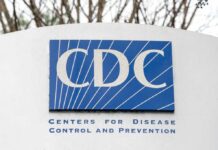
Infections and deaths from flesh-eating bacteria surge to record highs across the Southeast.
Story Snapshot
- Cases of deadly Vibrio vulnificus infections have spiked in Florida, Louisiana, Texas, North Carolina, Mississippi, and Alabama in 2025.
- Health departments have issued urgent warnings as dozens of Americans are infected and several have died in just a few months.
- Experts link the outbreak to rising sea temperatures and increased coastal activity, raising questions about preparedness and response.
- The surge is having ripple effects on tourism, seafood industries, and public trust in government health systems.
Unprecedented Surge in Flesh-Eating Bacteria Cases Across Southeast
From May through August 2025, Gulf Coast states have reported an alarming escalation in Vibrio vulnificus infections, a flesh-eating bacterium that thrives in warm, brackish waters. Louisiana’s Department of Health confirmed 17 cases and 4 deaths by July 31, while Florida documented 13 cases and 8 deaths by August. North Carolina reported a staggering 59 cases and 1 death, with Mississippi, Alabama, and Texas also confirming new infections. This spike is notably higher than previous years, sparking urgent public health advisories and raising concerns among residents and tourists.
Cases Skyrocketing For Flesh-Eating Bacteria In Several States https://t.co/e8gV13b8Fi via @dailycaller
— Steven I Szabo (@Shooter11b) August 8, 2025
The bacteria, first identified in the 1970s, naturally inhabit coastal waters and become most active during the hot summer months. People can become infected through open wounds exposed to contaminated water or by eating raw or undercooked seafood, particularly oysters. Health officials are warning that those with chronic illnesses or compromised immune systems face the highest risk for severe complications, including necrotizing fasciitis—commonly called “flesh-eating disease”—which can rapidly cause sepsis and even death if not treated immediately.
Watch a report:
State Health Departments Mobilize as Public Alarm Grows
State health agencies have responded with a wave of public warnings and educational campaigns. Louisiana, Florida, and Texas have issued official alerts emphasizing the dangers of swimming with open wounds and the importance of thoroughly cooking seafood. Hospitals in affected regions are reporting increased admissions, with some patients requiring intensive care or even limb amputations to stop the spread of infection. The Centers for Disease Control and Prevention (CDC) is actively coordinating with state officials to track cases and provide updated guidance.
Despite these efforts, the outbreak is straining local resources. Many coastal communities depend on summer tourism and seafood industries—both now threatened by public fear and economic uncertainty. The long-term impact could include reduced beach attendance, falling seafood sales, and increased healthcare costs, especially as families demand stronger protections and accountability from government agencies that have failed to invest in adequate monitoring and prevention in previous years.
Broader Implications: Public Health, Policy, and Conservative Concerns
While the immediate threat is medical, the outbreak raises broader questions about government priorities and readiness. The dramatic surge in infections comes after years of warnings from experts about rising sea temperatures and the risks of underfunded public health systems.
Cases Skyrocketing For Flesh-Eating Bacteria In Several States – Daily Caller @DailyCaller https://t.co/uxnnkznQ5S
— Dystopia America (@DystopiaAmerica) August 7, 2025
As the crisis unfolds, skepticism remains about bureaucratic competence and the effectiveness of top-down mandates. Ultimately, the situation highlights the need for practical, locally-driven solutions that empower individuals and communities, rather than expanding the reach of government agencies already viewed with distrust by many conservatives.
Sources:
Cases skyrocket for flesh-eating bacteria in several Gulf Coast states
Louisiana Department of Health: Vibrio vulnificus 2025 update
Florida Department of Health: Vibrio vulnificus
Louisiana reports four Vibrio vulnificus-related fatalities


















